
Cagayan de Oro: The City of Golden Friendship
Cagayan de Oro, often called the 'City of Golden Friendship,' is a vibrant city located in the northern part of Mindanao in the Philippines. Known for its friendly locals, it offers a warm and welcoming atmosphere to all visitors. The city is a blend of modern urban life and natural beauty, making it an ideal destination for both adventure seekers and relaxation enthusiasts. One of the main attractions in Cagayan de Oro is the Cagayan River, which is famous for its white-water rafting. This thrilling activity draws adventure lovers from all over the world. The river's rapids range from beginner to advanced levels, ensuring fun for everyone. Besides rafting, the city also boasts scenic nature parks like Mapawa Nature Park, where visitors can enjoy activities such as horseback riding, zip-lining, and hiking. Culture and history buffs will find plenty to explore in Cagayan de Oro. The city is home to several historical landmarks, including the Museo de Oro, which showcases the rich cultural heritage of the region. The St. Augustine Cathedral, with its beautiful architecture, is another must-visit site. For a taste of local life, the Divisoria Night Market offers a variety of street food, local crafts, and live music, providing a glimpse into the vibrant community spirit of the city. Cagayan de Oro is also a gateway to other attractions in Mindanao. A short trip away is the enchanting island of Camiguin, known for its hot springs, waterfalls, and the famous Sunken Cemetery. Whether you are looking for adventure, culture, or a relaxing getaway, Cagayan de Oro has something to offer for every traveler.
Local tips in Cagayan de Oro
- Try the white-water rafting on the Cagayan River for an unforgettable adventure experience.
- Visit the Divisoria Night Market for local street food and a lively atmosphere.
- Don’t miss out on exploring nearby attractions like the island of Camiguin for a serene escape.
- Wear comfortable clothing and bring plenty of water if you plan to hike in Mapawa Nature Park.
- Check out the Museo de Oro to learn about the city’s rich cultural history.
Neighbourhoods in Cagayan de Oro
Cagayan de Oro: The City of Golden Friendship
Cagayan de Oro, often called the 'City of Golden Friendship,' is a vibrant city located in the northern part of Mindanao in the Philippines. Known for its friendly locals, it offers a warm and welcoming atmosphere to all visitors. The city is a blend of modern urban life and natural beauty, making it an ideal destination for both adventure seekers and relaxation enthusiasts. One of the main attractions in Cagayan de Oro is the Cagayan River, which is famous for its white-water rafting. This thrilling activity draws adventure lovers from all over the world. The river's rapids range from beginner to advanced levels, ensuring fun for everyone. Besides rafting, the city also boasts scenic nature parks like Mapawa Nature Park, where visitors can enjoy activities such as horseback riding, zip-lining, and hiking. Culture and history buffs will find plenty to explore in Cagayan de Oro. The city is home to several historical landmarks, including the Museo de Oro, which showcases the rich cultural heritage of the region. The St. Augustine Cathedral, with its beautiful architecture, is another must-visit site. For a taste of local life, the Divisoria Night Market offers a variety of street food, local crafts, and live music, providing a glimpse into the vibrant community spirit of the city. Cagayan de Oro is also a gateway to other attractions in Mindanao. A short trip away is the enchanting island of Camiguin, known for its hot springs, waterfalls, and the famous Sunken Cemetery. Whether you are looking for adventure, culture, or a relaxing getaway, Cagayan de Oro has something to offer for every traveler.
When is the best time to go to Cagayan de Oro?
Iconic landmarks you can’t miss
Limketkai Center
Explore Limketkai Center, Cagayan de Oro's premier shopping mall, offering a unique blend of shopping, dining, and entertainment experiences.
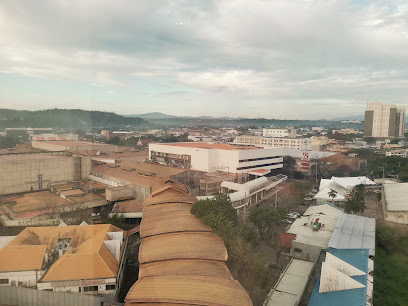
Centrio Mall
Discover shopping, dining, and entertainment at Centrio Mall, the ultimate destination in Cagayan de Oro for a complete urban experience.
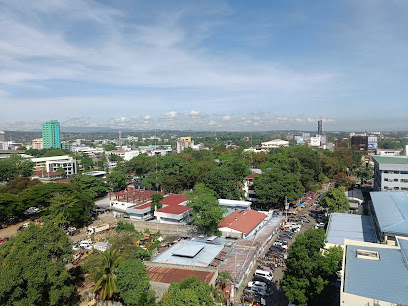
SM City CDO Uptown
Experience the vibrant shopping and dining scene at SM City CDO Uptown, Cagayan de Oro's premier destination for retail therapy and entertainment.
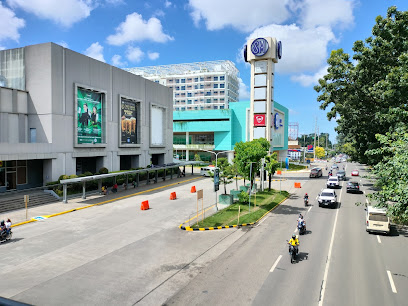
Seven Seas Waterpark and Resort
Experience the ultimate aquatic adventure at Seven Seas Waterpark and Resort in Misamis Oriental, where fun and relaxation meet under the sun.
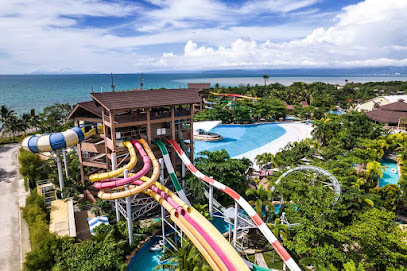
Gaston Park
Discover the tranquil beauty of Gaston Park in Cagayan de Oro, a perfect blend of nature and culture in the heart of the city.
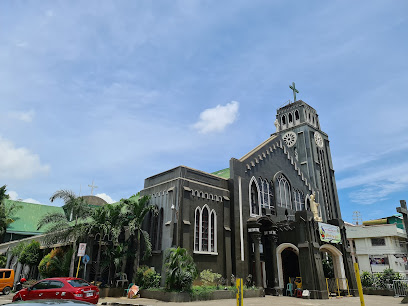
Plaza Divisoria
Experience the vibrant culture and lush greenery of Plaza Divisoria, a must-visit park in the heart of Cagayan de Oro.
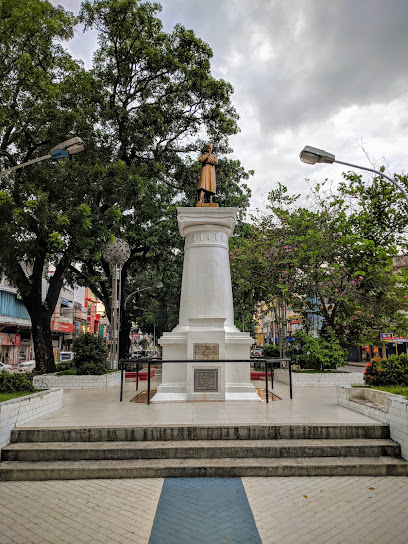
High Ridge
Discover the culinary delights and breathtaking views at High Ridge, the must-visit restaurant in Cagayan de Oro, perfect for every occasion.
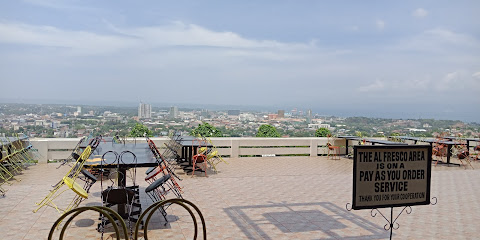
Pelaez Sports Center
Discover the vibrant sports culture of Cagayan de Oro at Pelaez Sports Center, a premier destination for sports enthusiasts and tourists alike.
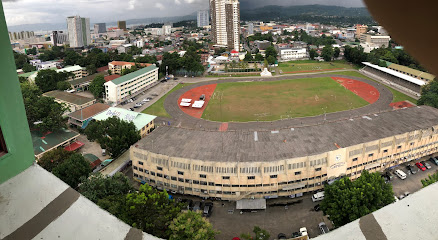
Golden Friendship Park
Experience the beauty and tranquility of Golden Friendship Park, a serene retreat in Cagayan de Oro, where nature meets local culture.
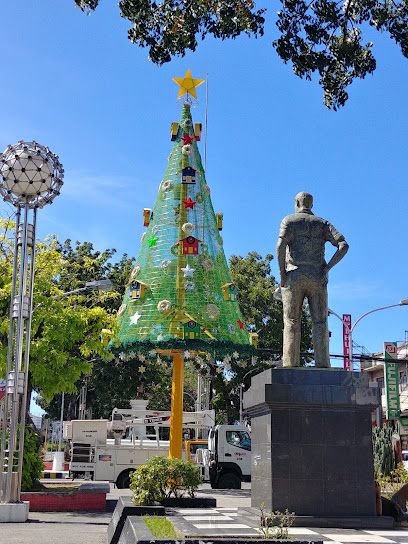
Vicente de Lara Park
Discover the serene beauty of Vicente de Lara Park in Cagayan de Oro—a perfect retreat for nature lovers and a glimpse into local culture.
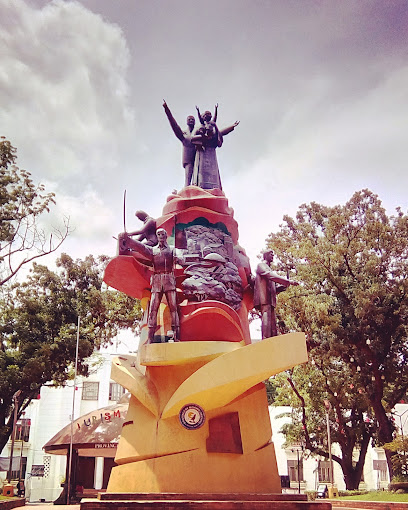
St. Augustine Metropolitan Cathedral
Discover the breathtaking St. Augustine Metropolitan Cathedral, a must-visit landmark in Cagayan de Oro, showcasing stunning architecture and rich history.
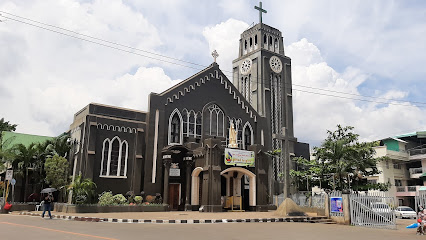
Circa 1850
Indulge in the best Asian Fusion cuisine at Circa 1850 in Cagayan de Oro, where every meal is a celebration of flavor and culture.
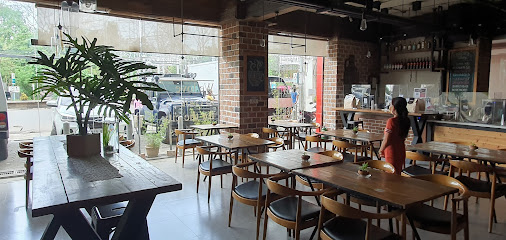
Eden's Solace
Discover the serene beauty of Eden's Solace in Cagayan de Oro, a tropical paradise perfect for relaxation and exploration of lush gardens.
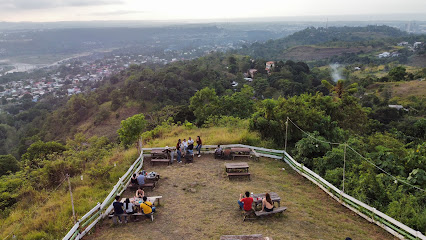
Cagayan de Oro Port Terminal Building
Experience the vibrant culture and adventure of Northern Mindanao at Cagayan de Oro Port Terminal, your gateway to unforgettable journeys.
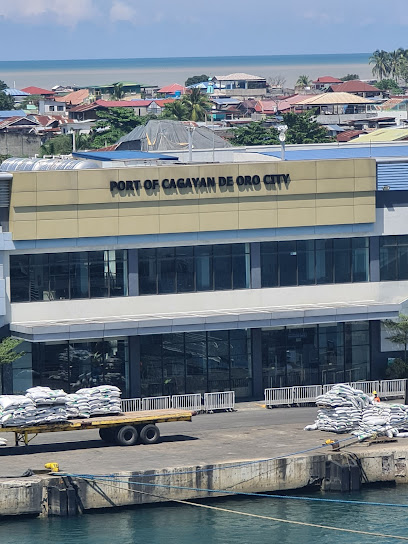
SINULOM FALLS
Experience the serene beauty of Sinulom Falls in Tignapoloan de Oro, a breathtaking natural attraction perfect for relaxation, adventure, and unforgettable memories.
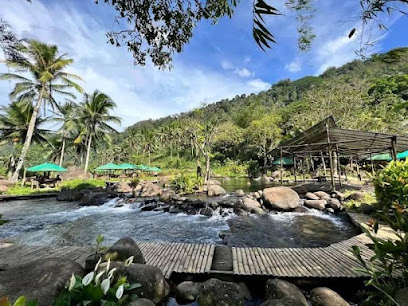
Unmissable attractions to see
Seven Seas Waterpark and Resort
Experience the ultimate water adventure at Seven Seas Waterpark and Resort in Misamis Oriental, where fun and relaxation await for every visitor.
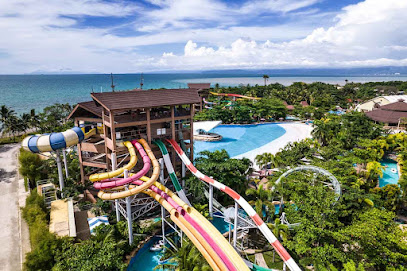
Gaston Park
Discover the serenity of Gaston Park, a lush urban oasis in Cagayan de Oro perfect for relaxation, picnics, and family fun amidst nature's beauty.
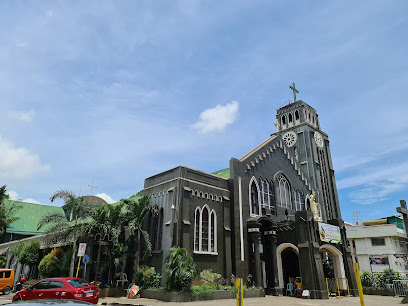
Plaza Divisoria
Experience the vibrant culture and community spirit at Plaza Divisoria, a must-visit park in Cagayan de Oro, Philippines.
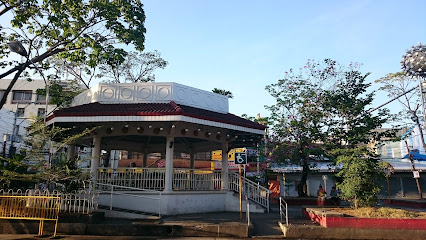
Amaya View
Discover thrilling rides and stunning views at Amaya View, Cagayan de Oro's premier theme park for family fun and adventure.
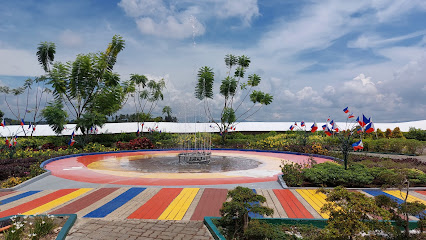
Pelaez Sports Center
Explore the vibrant sports culture at Pelaez Sports Center in Cagayan de Oro, a community hub for athletes and sports enthusiasts.
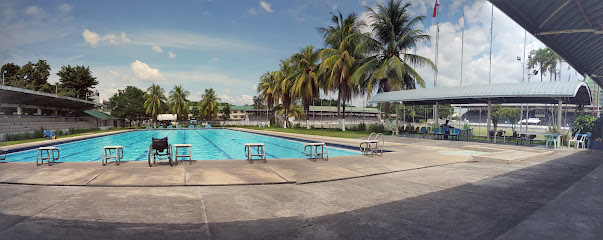
Golden Friendship Park
Discover the serene beauty of Golden Friendship Park, a lush urban oasis in Cagayan de Oro, where nature meets culture in perfect harmony.
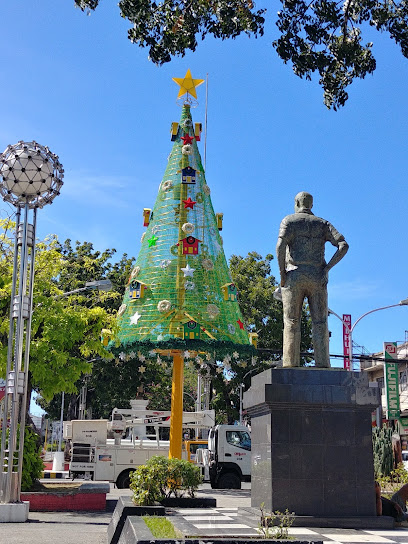
Vicente de Lara Park
Experience the serene beauty of Vicente de Lara Park, an urban oasis in Cagayan de Oro, perfect for relaxation and nature appreciation.
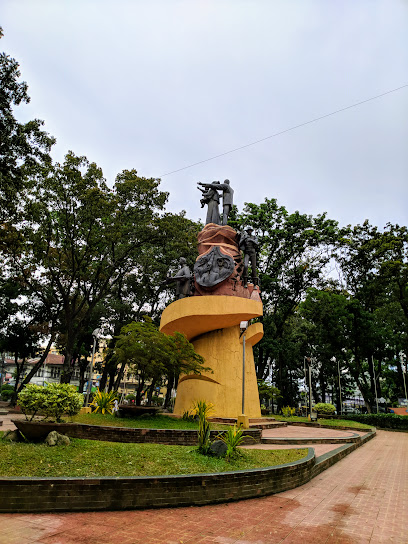
St. Augustine Metropolitan Cathedral
Explore the stunning St. Augustine Metropolitan Cathedral, a symbol of faith and history in Cagayan de Oro, with breathtaking architecture and serene gardens.
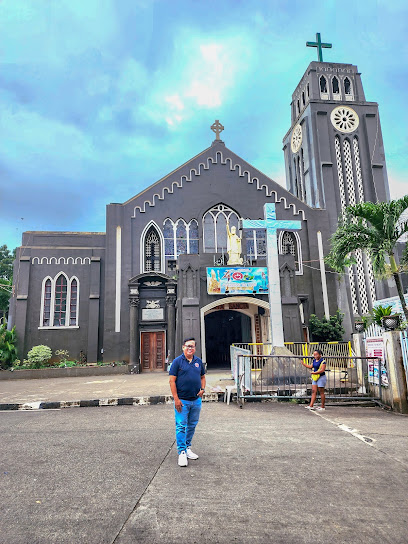
Eden's Solace
Eden's Solace: Experience breathtaking views and serene landscapes in the heart of Cagayan de Oro, a true tropical paradise for nature lovers.
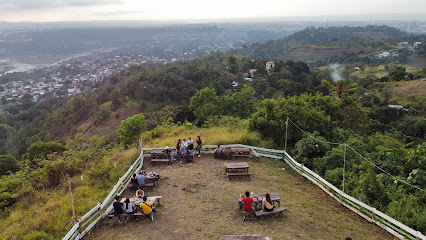
SINULOM FALLS
Experience the natural beauty of Sinulom Falls in Misamis Oriental – a stunning escape into the heart of nature's splendor.
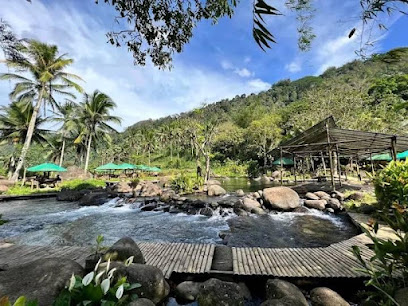
Gardens of Malasag Eco-Tourism Village
Experience nature and culture harmoniously at the Gardens of Malasag Eco-Tourism Village in Cagayan de Oro, a destination for relaxation and adventure.

Macahambus Cave
Discover the captivating beauty and rich history of Macahambus Cave in Cagayan de Oro, a must-visit tourist attraction for every adventurer.
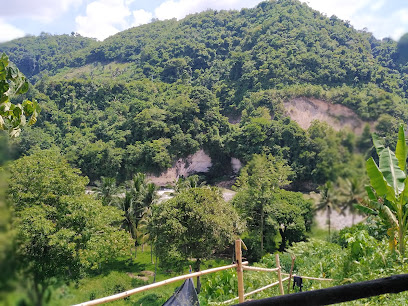
Museum of Three Cultures
Explore the Museum of Three Cultures in Cagayan de Oro for an enriching experience of local history, art, and cultural diversity.
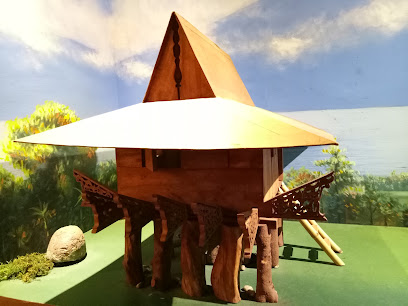
Museo de Oro
Explore the rich cultural heritage of Northern Mindanao at Museo de Oro, a must-visit destination for history lovers and tourists alike.
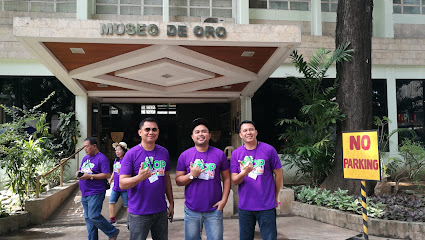
Noah's Ark
Discover the wonders of wildlife at Noah's Ark, Cagayan de Oro's top zoo and family-friendly tourist attraction.
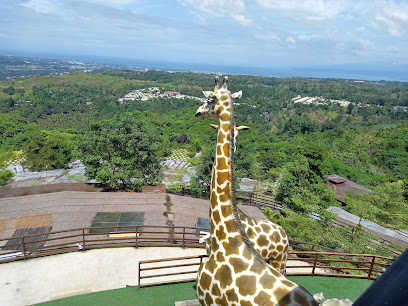
Essential places to dine
Tong Yang Plus CDO
Discover the authentic taste of Japan with a Filipino twist at Tong Yang Plus CDO - an unforgettable Shabu Shabu experience in Cagayan de Oro.
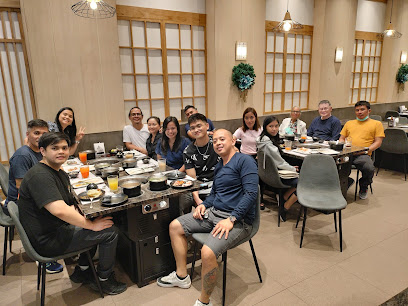
Cucina Higala
Discover authentic Filipino flavors at Cucina Higala in Cagayan de Oro – where every dish tells a story.
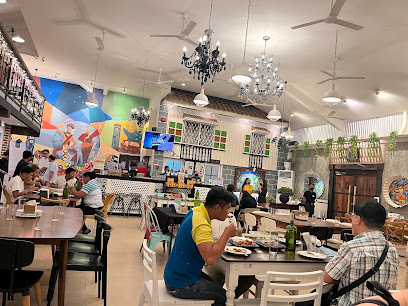
Redtail Shrimps & More
Discover the ultimate seafood experience at Redtail Shrimps & More in Cagayan de Oro - where freshness meets flavor!
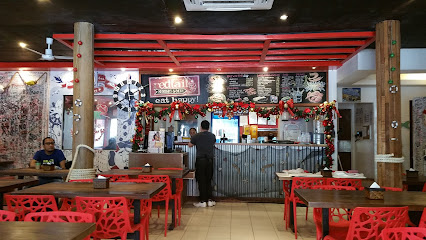
High Ridge
Discover the culinary charm of High Ridge in Cagayan de Oro, where breathtaking views meet exceptional dining experiences.
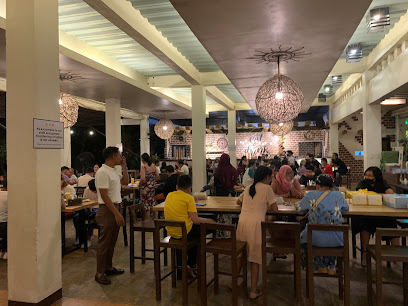
Circa 1850
Experience the vibrant flavors of Asia at Circa 1850 – Cagayan de Oro's premier Asian Fusion restaurant with a welcoming atmosphere.
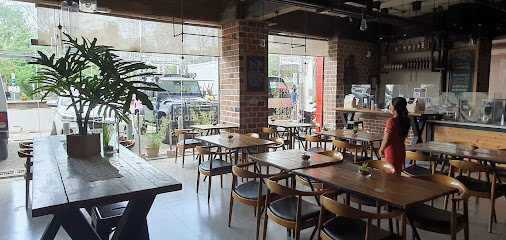
Ribs & Bibs Centrio Branch
Experience the best barbecue at Ribs & Bibs Centrio Branch in Cagayan de Oro—where flavor meets tradition!
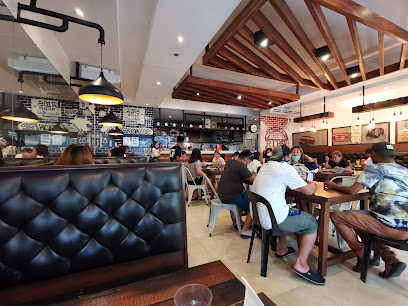
D' Original La Paz Batchoy
Experience authentic Filipino flavors at D' Original La Paz Batchoy in Cagayan de Oro - home of the beloved batchoy noodle soup.
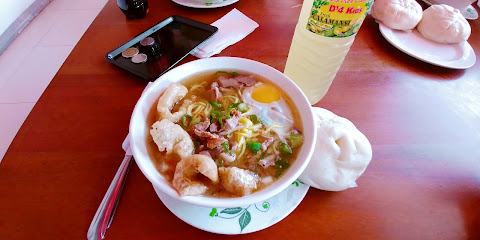
Fat Chef Restaurant
Discover culinary excellence at Fat Chef Restaurant in Cagayan de Oro - where local flavors meet international cuisine.
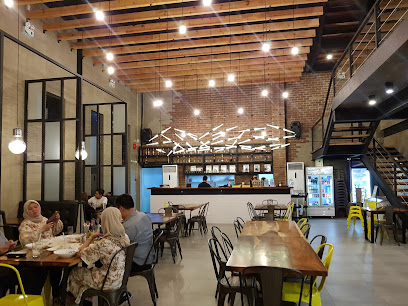
POPS CDO Buffet Cagayan de Oro
Discover an unforgettable buffet experience filled with authentic Filipino flavors at POPS CDO Buffet in Cagayan de Oro.
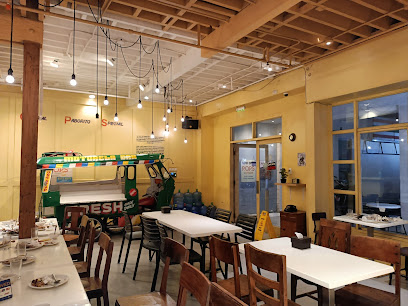
Romantic Baboy
Discover the ultimate Korean BBQ experience at Romantic Baboy in Cagayan de Oro's Limketkai Center - a feast for all senses!
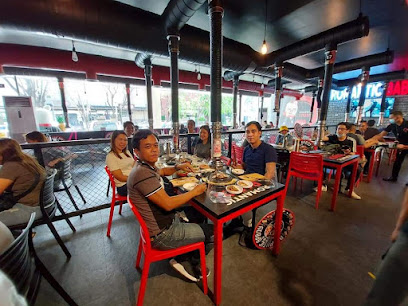
Sentro 1850
Experience authentic Filipino flavors at Sentro 1850 in Cagayan de Oro - where culinary traditions meet modern taste.
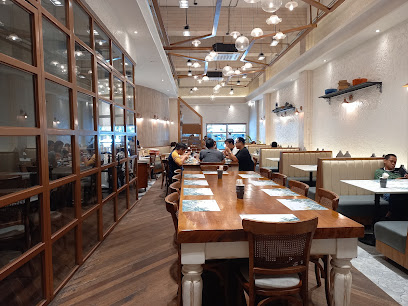
Ribs & Bibs
Experience a barbecue lover's paradise at Ribs & Bibs in Cagayan de Oro - where every bite bursts with flavor!
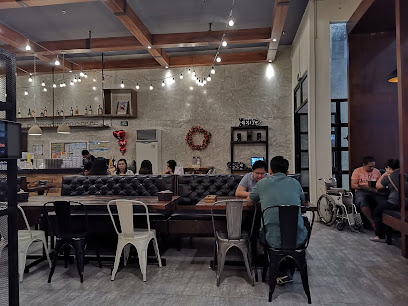
Tadakuma Japanese Restaurant
Experience the essence of Japanese dining at Tadakuma Japanese Restaurant in Cagayan de Oro – where tradition meets taste.
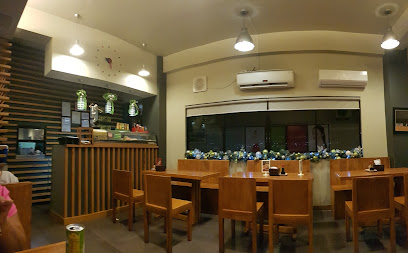
Grand Caprice Restaurant
Experience culinary excellence at Grand Caprice Restaurant in Cagayan de Oro's vibrant Limketkai Center with diverse flavors and exceptional service.
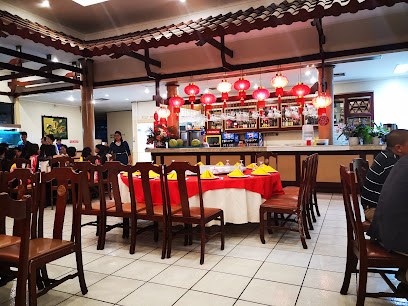
Resto Freeno
Experience authentic Filipino cuisine at Resto Freeno in Cagayan de Oro – where local flavors meet modern dining.
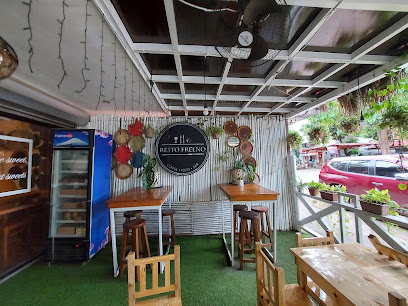
Markets, malls and hidden boutiques
SM City CDO Uptown
Experience shopping, dining, and entertainment at SM City CDO Uptown in Cagayan de Oro, the ultimate destination for tourists and locals alike.
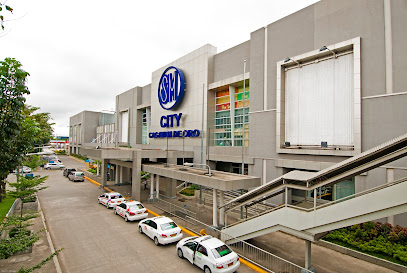
Robinsons Cagayan De Oro
Explore Robinsons Cagayan De Oro for an unforgettable shopping experience featuring local delights and global brands in a vibrant atmosphere.
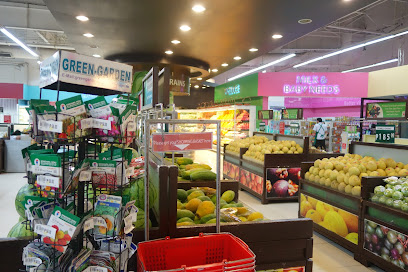
SM Store - CDO Downtown
Explore SM Store - CDO Downtown: A vibrant department store in Cagayan de Oro, offering a diverse shopping and dining experience for all visitors.
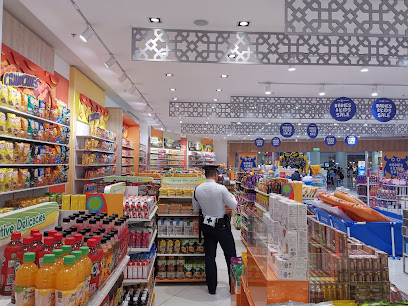
UNICITY
Discover UNICITY, the ultimate shopping destination in Cagayan de Oro, offering a wide variety of groceries, home goods, and more for every traveler.
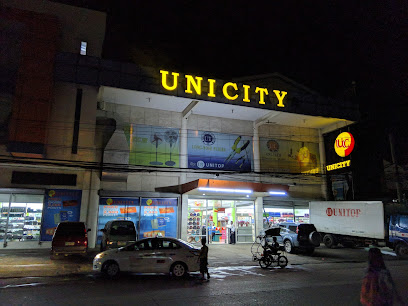
Novo Jeans & Shirt
Explore the heart of Cagayan de Oro with unique clothing selections at Novo Jeans & Shirt, where style meets quality and comfort.
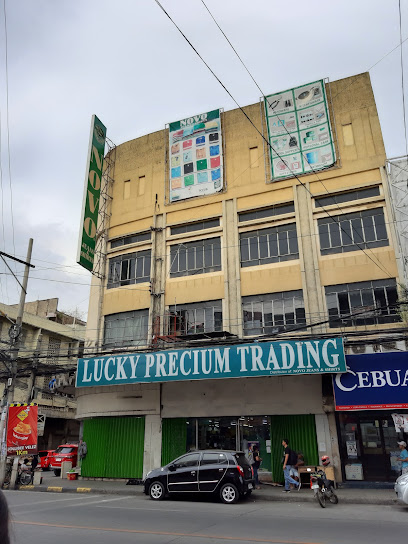
Oro Bohol Trading
Explore the artistry of the Philippines at Oro Bohol Trading, Cagayan de Oro's premier craft store for unique handicrafts and souvenirs.

UNITOP
Explore UNITOP in Cagayan de Oro for an unforgettable shopping experience filled with local flavors and diverse products.
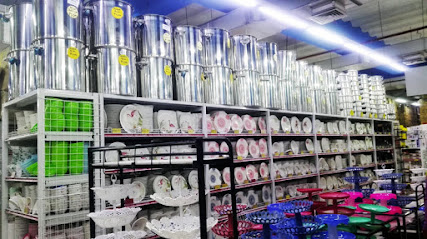
Giftmate
Explore Giftmate in Cagayan de Oro for unique souvenirs and local handicrafts that embody the spirit of the Philippines.
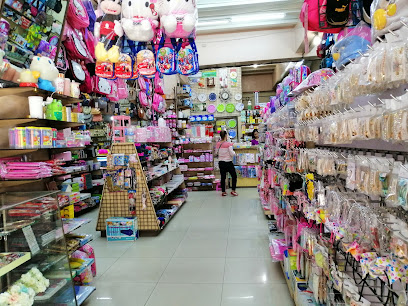
Robinsons Department Store
Explore Robinsons Department Store in Cagayan de Oro for a diverse shopping experience with top brands and local treasures.
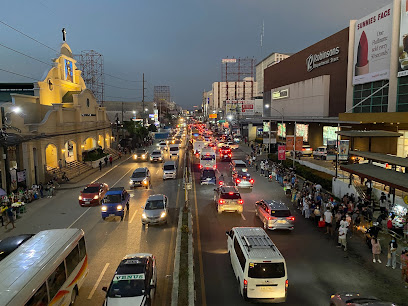
DILAO Shopping Center
DILAO Shopping Center: Your ultimate destination for fashionable accessories in Cagayan de Oro, where style meets local charm.

LOOT BAG THE PARTY STORE
Explore LOOT BAG THE PARTY STORE in Cagayan de Oro for unique decorations and supplies to make every celebration unforgettable.
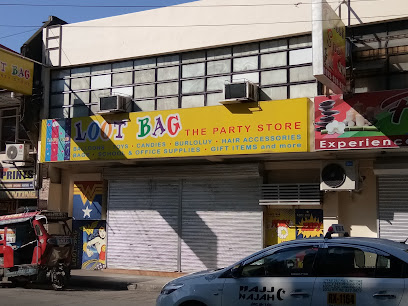
UniSilver
Explore UniSilver in Cagayan de Oro for unique gifts and local treasures that embody Filipino craftsmanship.

Puyo Handicrafts
Explore authentic Filipino craftsmanship at Puyo Handicrafts, the perfect destination for unique souvenirs in Cagayan de Oro City.

CDO Native Products Trading
Discover authentic Filipino home goods and unique souvenirs at CDO Native Products Trading in Cagayan de Oro, a treasure trove of local craftsmanship.
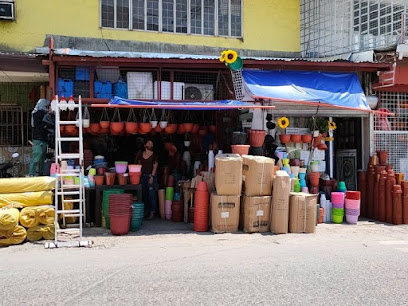
Cdo
Discover local fashion and culture at Gaisano Suki Club in Cagayan de Oro, the perfect blend of trendy styles and Filipino spirit.
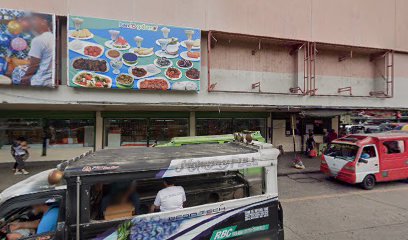
Essential bars & hidden hideouts
Pulse Live Music Venue
Discover the vibrant nightlife of Cagayan de Oro at Pulse Live Music Venue, where live music and great vibes create unforgettable moments.
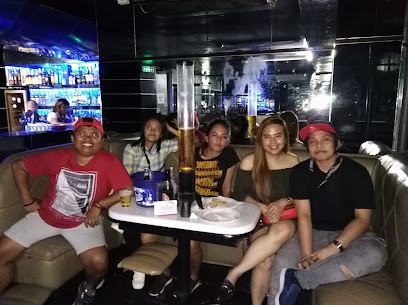
Sky Bar CTC
Experience the vibrant nightlife and stunning views at Sky Bar CTC in Cagayan de Oro, where every sip is a celebration.
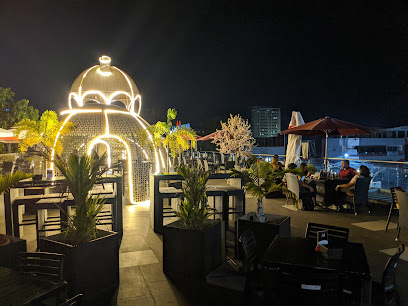
The Oak Room
Experience the lively ambiance and delightful drinks at The Oak Room, the premier bar destination in Cagayan de Oro for a memorable night out.
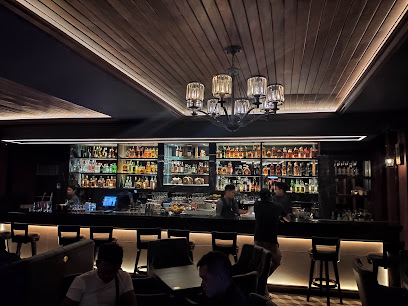
4Daboys Pub
Discover the lively ambiance of 4Daboys Pub in Cagayan de Oro, where great drinks and vibrant nightlife come together for an unforgettable experience.
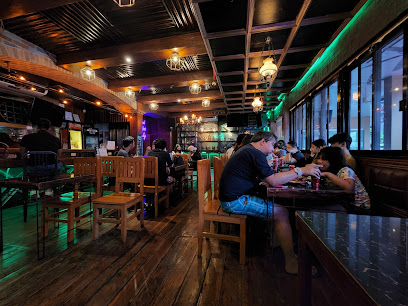
De Kalsada Restobar Uptown
Experience the vibrant flavors of Cagayan de Oro at De Kalsada Restobar Uptown, a top destination for grilled delights and lively entertainment.

Wheels Entertainment Bar
Experience vibrant nightlife at Wheels Entertainment Bar in Cagayan de Oro, where delicious grilled dishes and great company await.
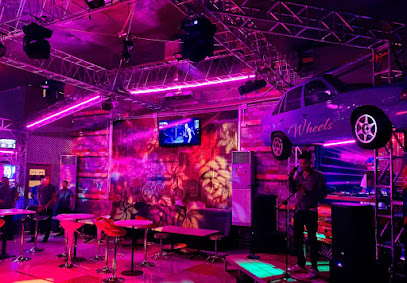
GAMBA SPORTS AND MUSIC BAR
Discover Cagayan de Oro's vibrant nightlife at GAMBA Sports and Music Bar - where sports and music meet for an unforgettable experience.
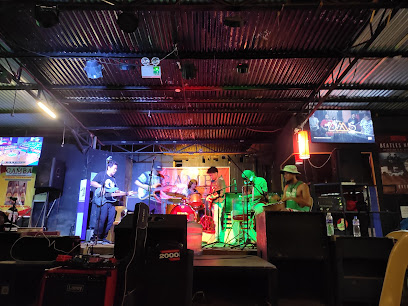
Lights Bar
Discover the lively atmosphere of Lights Bar in Cagayan de Oro, where locals and tourists enjoy a vibrant nightlife experience with great drinks and music.
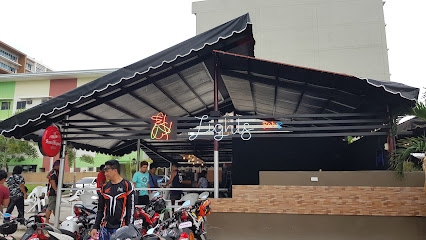
Downtown Lounge CDO
Discover the lively nightlife at Downtown Lounge CDO, a premier bar in Cagayan de Oro offering a vibrant atmosphere and an extensive drink selection.
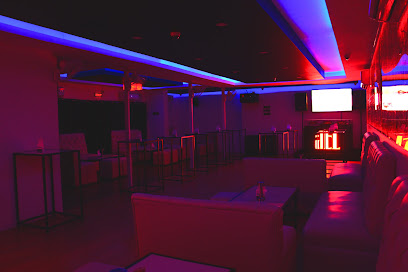
Harmony Zone Bar and Cloudy Nights Vapeshop
Discover the lively atmosphere of Harmony Zone Bar in Cagayan de Oro, where local drinks and vibrant nightlife come together for an unforgettable experience.
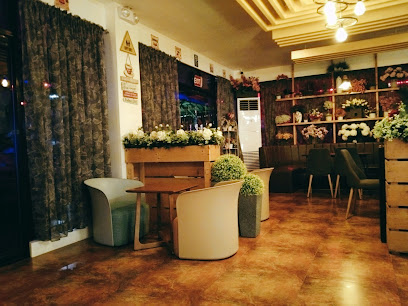
Jackals Live
Discover the lively nightlife at Jackals Live, a vibrant bar in Cagayan de Oro known for its music, drinks, and fun atmosphere.
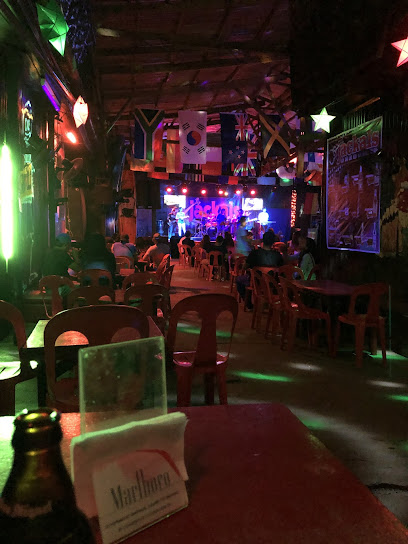
Brako Bar and Grill
Discover the vibrant flavors and warm hospitality of Brako Bar and Grill in Cagayan de Oro, where every meal is a celebration of local cuisine.
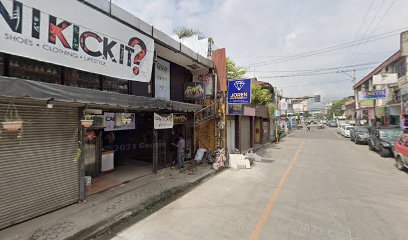
HAZE restobar
Experience the vibrant nightlife of Cagayan de Oro at HAZE Restobar, where delicious drinks and a lively atmosphere await.
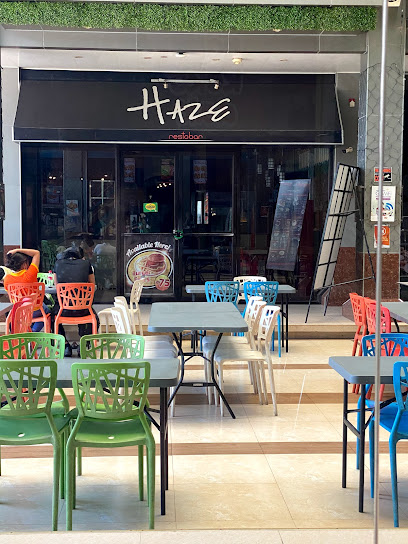
Chillout Bar & Music Lounge
Experience vibrant nightlife at Chillout Bar & Music Lounge, where refreshing drinks and live music create the perfect evening in Cagayan de Oro.
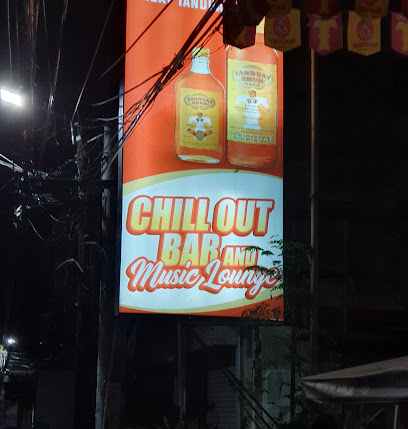
Local Phrases
-
- HelloKumusta
[koo-MOO-stah] - GoodbyePaalam
[pah-AH-lahm] - YesOo
[oh-oh] - NoDili
[dee-lee] - Please/You're welcomePalihug
[pah-lee-HOOG] - Thank youSalamat
[sah-lah-MAHT] - Excuse me/SorryPasayloa ko
[pah-sai-LOH-ah koh] - How are you?Kumusta ka?
[koo-MOO-stah kah] - Fine. And you?Maayo. Ug ikaw?
[mah-YAH-oh. oog ee-KAHW] - Do you speak English?Kahibaw ka ug English?
[kah-HEE-bao kah oog ENG-lish] - I don't understandDili ko kasabot
[dee-lee koh kah-sah-BOT]
- HelloKumusta
-
- I'd like to see the menu, pleaseGusto ko makakita sa menu, palihug
[GOOS-toh koh mah-kah-KEE-tah sah MEH-noo, pah-lee-HOOG] - I don't eat meatDili ko mokaon ug karne
[dee-lee koh moh-KAH-ohn oog KAR-neh] - Cheers!Tagay!
[tah-GAI] - I would like to pay, pleaseGusto ko mobayad, palihug
[GOOS-toh koh moh-bah-YAHD, pah-lee-HOOG]
- I'd like to see the menu, pleaseGusto ko makakita sa menu, palihug
-
- Help!Tabang!
[tah-BAHNG] - Go away!Lakat!
[lah-KAHT] - Call the Police!Tawag sa pulis!
[tah-WAHG sah POO-lees] - Call a doctor!Tawag sa doktor!
[tah-WAHG sah DOK-tor] - I'm lostGuba ko
[GOO-bah koh] - I'm illSakit ko
[sah-KEET koh]
- Help!Tabang!
-
- I'd like to buy...Gusto ko mopalit...
[GOOS-toh koh moh-PAH-leet] - I'm just lookingNagtan-aw lang ko
[nag-tan-AW lahng koh] - How much is it?Tagpila ni?
[tahg-PEE-lah nee] - That's too expensiveMahal kaayo
[mah-HAHL kah-AH-yoh] - Can you lower the price?Pwede pa ba isubo ang presyo?
[pweh-deh pah bah ee-SOO-boh ahng PREH-syoh]
- I'd like to buy...Gusto ko mopalit...
-
- What time is it?Pila na ang oras?
[PEE-lah nah ahng OR-ahs] - It's one o'clockAlas uno na
[AH-lahs OO-noh nah] - Half past (10)Alas napulo ug tunga
[AH-lahs nah-POO-loh oog TOONG-gah] - MorningBuntag
[BOON-tahg] - AfternoonHapon
[HAH-pohn] - EveningGabii
[gah-BEE] - YesterdayKagahapon
[kah-gah-HAH-pohn] - TodayKaron
[KAH-ron] - TomorrowUgma
[oog-mah] - 1Usa
[OO-sah] - 2Duha
[DOO-hah] - 3Tulo
[TOO-loh] - 4Upat
[oo-PAHT] - 5Lima
[LEE-mah] - 6Unom
[OO-nom] - 7Pito
[PEE-toh] - 8Walo
[WAH-loh] - 9Siyam
[see-YAHM] - 10Napulo
[nah-POO-loh]
- What time is it?Pila na ang oras?
-
- Where's a/the...?Asa ang...?
[AH-sah ahng] - What's the address?Unsa may address?
[OON-sah mahy address] - Can you show me (on the map)?Pwede pa ba nimo ipakita (sa mapa)?
[PWEH-deh pah bah NEE-moh ee-pah-KEE-tah sah MAH-pah] - When's the next (bus)?Kanus-a ang sunod (sakyanan)?
[kah-NOO-sah ahng soo-NOHD sah-KYAH-nahn] - A ticket (to ....)Usa ka tiket (padulong sa ....)
[OO-sah kah TEE-ket pah-DUH-loong sah]
- Where's a/the...?Asa ang...?
History of Cagayan de Oro
-
Before the arrival of Spanish colonizers, Cagayan de Oro was inhabited by indigenous tribes such as the Higaonon, Bukidnons, and Manobos. These tribes had their own distinct cultures, languages, and traditions. They lived in harmony with nature, practicing subsistence farming, hunting, and fishing.
-
In 1622, Spanish missionaries arrived in the area and established the settlement of Cagayan de Misamis, which would later become Cagayan de Oro. The Spanish influence brought Christianity to the region, and many indigenous people were converted. The construction of churches, such as the St. Augustine Metropolitan Cathedral, began during this period.
-
During the Philippine-American War in 1900, Cagayan de Misamis was the site of a significant battle. Filipino revolutionaries, led by General Nicolas Capistrano, engaged American forces in what became known as the Siege of Cagayan de Misamis. Although the battle ended in an American victory, it demonstrated the local resistance against foreign rule.
-
Cagayan de Oro, like much of the Philippines, was occupied by Japanese forces during World War II. The city experienced hardship, with many residents becoming guerilla fighters. The Battle of Macajalar Bay in 1945, which saw the liberation of Cagayan de Oro by Filipino and American forces, was a turning point in the city's history.
-
After World War II, Cagayan de Oro underwent significant reconstruction and development. The city's strategic location and natural resources contributed to its growth as a commercial and economic hub in Northern Mindanao. Infrastructure improvements, such as the construction of bridges and highways, facilitated trade and commerce.
-
In the latter half of the 20th century, Cagayan de Oro earned the moniker 'City of Golden Friendship' due to its reputation for hospitality and friendly residents. The city continued to grow, with the establishment of educational institutions like Xavier University and the development of various industries, including agriculture, manufacturing, and tourism.
-
Cagayan de Oro is known for its vibrant cultural heritage and festivals. The city celebrates the Kagay-an Festival every August, commemorating the feast day of St. Augustine. The festival features street dancing, parades, and various cultural activities that highlight the city's rich history and traditions.
-
In recent years, Cagayan de Oro has continued to expand, becoming one of the fastest-growing cities in the Philippines. However, this rapid development has also brought challenges, including urbanization, traffic congestion, and environmental concerns. Efforts are ongoing to address these issues while maintaining the city's cultural and historical identity.
Cagayan de Oro Essentials
-
Cagayan de Oro is accessible by air, land, and sea. The Laguindingan Airport, located approximately 45 minutes from the city center, handles daily flights from Manila, Cebu, and other major Philippine cities. For land travel, buses from Manila, Davao, and other cities in Mindanao are available. If you prefer sea travel, ferries from Cebu, Bohol, and other islands dock at the Macabalan Pier.
-
Getting around Cagayan de Oro is convenient with various transportation options. Jeepneys are the most common mode of public transport, covering numerous routes within the city. Taxis and ride-hailing services like Grab are also available. For a more local experience, you can try the motorela, a unique form of tricycle. Car rentals are an option for those who prefer more flexibility in their travel.
-
The official currency is the Philippine Peso (PHP). Credit cards are widely accepted in hotels, restaurants, and larger shops, but it is advisable to carry cash for smaller establishments and markets. ATMs are plentiful in the city, and most major international cards are accepted. Currency exchange services are available at the airport, hotels, and various money changers in the city.
-
Cagayan de Oro is generally safe for tourists, but it is essential to take standard precautions. Avoid displaying valuables and be cautious in crowded areas to prevent pickpocketing. Certain areas, like the Divisoria Night Market, can get crowded, so stay vigilant. It is advisable to avoid walking alone late at night in less-populated areas. Always use registered taxis or ride-hailing services for transportation.
-
In case of emergency, dial 911 for immediate assistance. The JR Borja General Hospital and Northern Mindanao Medical Center are the main hospitals in the city. Pharmacies are widely available for minor health issues. It is recommended to have travel insurance that covers medical emergencies. The local police station is also accessible for any safety concerns.
-
Fashion: Do dress modestly, especially when visiting religious sites. Avoid overly revealing clothing. Religion: Do respect local customs and traditions. Remove your shoes when entering places of worship. Public Transport: Do be courteous and offer your seat to elderly passengers. Don’t eat or drink on public transport. Greetings: Do greet people with a smile and a polite 'hello' or 'good day.' A handshake is common in formal settings. Eating & Drinking: Do try local delicacies and accept food offerings graciously. Don’t refuse hospitality, as it is considered impolite.
-
To experience Cagayan de Oro like a local, visit the local markets such as Cogon Market for fresh produce and local goods. Engage with locals, who are friendly and often eager to share stories about the city's culture and history. Don’t miss the whitewater rafting experience on the Cagayan de Oro River, a popular activity among both locals and tourists. For a unique culinary experience, try the pastel de Camiguin, a sweet bun filled with yema.
Trending Landmark in Cagayan de Oro
Nearby Cities to Cagayan de Oro
-
Things To Do in Camiguin
-
Things To Do in Bohol
-
Things To Do in Davao City
-
Things To Do in Siargao
-
Things To Do in Cebu City
-
Things To Do in Zamboanga City
-
Things To Do in Boracay
-
Things To Do in Legazpi
-
Things To Do in Puerto Princesa
-
Things To Do in Palawan
-
Things To Do in Tagaytay
-
Things To Do in Manado
-
Things To Do in Sandakan
-
Things To Do in Manila
-
Things To Do in Subic
















